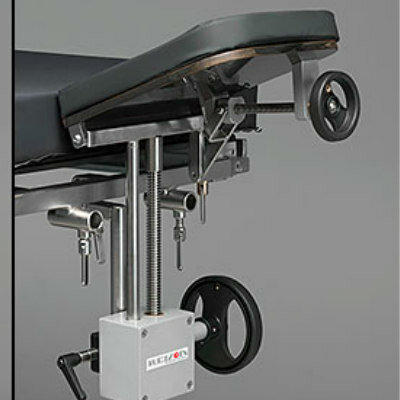Lap Sleeve Gastrectomy May Provide Fleeting Weight Loss
By HospiMedica International staff writers
Posted on 19 Aug 2015
Long-term follow-up of laparoscopic sleeve gastrectomy (LSG) patients reveals significant weight regain and a decrease in remission rates of diabetes, claims a new study. Posted on 19 Aug 2015
Researchers at Rabin Medical Center-Beilinson Hospital (Petah Tikva, Israel) conducted a retrospective cohort study using data collected from 443 patients that underwent LSG by the same team between April 1, 2006, and February 28, 2013. The data included demographic details, weight follow-up, blood test results, and information on medications. The main outcome measures were excess weight loss and partial and complete remission of obesity-related comorbidities such as diabetes mellitus, hypertension, dyslipidemia, and hyperuricemia.
The results showed that within five years, the percentage of excess weight loss declined from 77% to 56%, and complete remission of diabetes was maintained in only 20% of patients. As to remission of hypertension, it was maintained in 45.5% of patients, and there were also significant differences in levels of high-density lipoprotein cholesterol levels and triglyceride levels. The study was published on August 4, 2015, in JAMA Surgery.
“In our opinion, the presence of obesity-related comorbidities should play a major role when choosing the appropriate procedure for a specific patient,” concluded lead author by Andrei Keidar, MD, and colleagues. “For example, performing an operation that yields a low resolution rate of hyperlipidemia translates into lifelong medical treatment in a young patient with significant hyperlipidemia. In that case, a malabsorptive procedure might be more beneficial than an LSG procedure.”
“There are gaps in the knowledge about how effective LSG is; these critical gaps in knowledge pose a significant problem for people considering a potential surgical option to treat severe obesity,” wrote Anita Courcoulas, MD, MPH, of the University of Pittsburgh (PA, USA), in an accompanying editorial. “Contributing to these deficits are the paucity of comparative trials, incomplete follow-up, a lack of standardized definitions for changes in health status (e.g., diabetes mellitus remission), and the tendency to a rush to judgment in favor of surgical treatment options.”
LSG is a restrictive form of weight loss surgery intended for the morbidly obese which permanently reduces the size of the stomach by removing the lateral 2/3 of the stomach with a stapling device. While the stomach is drastically reduced in size, function is preserved, and there is no malabsorption of nutrients and supplements. LSG avoids the problems associated with bypass forms of weight loss surgery, including anemia, intestinal obstruction or blockage, osteoporosis, and protein and vitamin deficiency. Since about 100–200 mL of stomach capacity is maintained, there are very few restrictions on food consumption.
Related Links:
Rabin Medical Center-Beilinson Hospital














